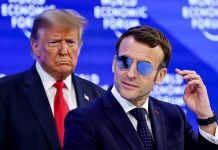China has blamed the United States for frequently changing its mind and called for an end US-China trade disputes. The Chinese Ambassador to the US, Cui Tiankai said Beijing was ready to resume trade talks with Washington while indirectly blaming Donald Trump for his wavering policies.
US – China Trade War Gets Nasty, Beijing to Raise Duties on US$60 Billion of US Good
Cui said China remains ready to continue talks to reach a conclusion. However, no further trade talks between the Chinese and US negotiators have been scheduled since the last meeting ended in a stalemate on May 10.
Chinese officials had sought major changes to the text of a proposed deal, which the Trump administration says has been largely agreed. But Cui alleged that US negotiators had abruptly backed away from some previous deals that had been tentatively agreed over the past year.
“Its quite clear that it is the US side that more than once changed its mind overnight and broke the tentative deal already reached. We are still committed to whatever we agree to do, but it is the US side that changed its mind so often.”
The US Commerce Secretary Wilbur Ross, in June 2018, had held negotiations with the Chinese vice-president Liu He on an offer by China to increase its purchases of US goods by around $70 billion. However, the US President did not accept the offer, rather, he began to impose tariffs on Chinese goods.
The American Chamber of Commerce of China and its sister body in Shanghai said its members face increased obstacles such as government inspections, slower customs clearance and slower approval for licensing and other applications. It revealed that 40.7 per cent of respondents were considering or had relocated manufacturing facilities outside China.
Respondents from both, the US and China said the impact of tariffs was hurting their competitiveness. “About one-third of companies said they were increasingly focusing their China operations on producing for Chinese customers and not for export, while another one-third said they were delaying and cancelling investment decisions.”




